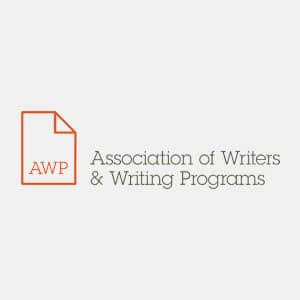Get Matched With English Education Colleges
What Does a Career in English Entail?
Are you interested in pursuing a career in English? If you enjoy reading, writing, and exploring the many uses of the written word, there are many English-focused careers available that find these proficiencies beneficial, especially for English graduates who can communicate effectively with a variety of audiences. While specific employment opportunities vary, almost every industry has a need for individuals with superior language skills. Additionally, many of the lessons learned as an online or traditional English student are transferrable. In most cases, people with a background in English can find openings in the following jobs. However, those with an English major who choose to add diversity to their knowledge base with a minor or double major in the sciences, library science, political philosophy, art and design, or other academics can find themselves in leadership positions in many of these fields.
Read More- Digital Copywriter
- Editorial Assistant
- Teaching English in Primary Schools
- Teaching English in a Secondary School
- English as a Foreign Language Teacher
- Lexicographer
- Magazine Journalist
- Newspaper Journalist
- Publishing Copy-Editor
- Proofreader
- Web Content Manager
- Writer - Fiction Writing, Technical Writing, and more
- Academic Librarian
- Advertising Copywriter
- Marketing Executive
- Private Tutor
- Records Manager
- Social Media Manager
- Public Relations Officer
- Many More

Components of a Successful Career with an English Degree
A career in English is not for everyone. In fact, many people struggle to complete language-centered tasks accurately and efficiently. Because individuals with a background or BA in English and writing can often find work in a variety of industries, it's not surprising that many English-focused jobs require significant education and practice. Luckily, these skills can be developed easily through online learning platforms, and there are many online degree programs available for students who may not have the ability to attend on-campus but can find the time for online or distance learning. Individuals who hope to pursue careers in English, such as technical writing or teaching English, will need to demonstrate the ability to:
- Establish and maintain a schedule or calendar for school based on your strengths
- Successfully complete work under deadlines, such as when handing in a report
- Grasp subtle nuances in writing and verbal communication
- Communicate effectively, clearly, and articulately in writing (for online or business communication)
- Use critical thinking before acting or voicing an opinion
- Argue points in an informative and constructive way using excellent analytical skills and communication skills
- Accept criticism constructively and apply it to future work
- You'll need to create text that is free of spelling and grammar issues by self-editing
Featured Online Programs
How to Become an English Major
Becoming an English major is not that difficult. The hardest part is completing the coursework after you have been admitted to a college or university program. However, a simplified, step-by-step explanation of the process consists of the following:
-
Develop and hone your interest in and skill with language arts
-
Research potential college and university programs
-
Create, request, and organize application materials
-
Decide which institution suits your goals best
-
Apply for at least three programs (first, second, and third choices - you can choose between online, traditional, and hybrid programs which include online and in-person courses)
-
Select courses that align with your personal and career interests
You may also want to consider taking the Advanced Placement English and Composition class and examinations before college. The College Board, the organization responsible for developing and administering standardized exams, offers this option as part of their Advanced Placement Program. This class covers advanced language topics and concepts and can help prepare you for greater success as an English major. Keep in mind, however, that college credit is only awarded if you pass the examination.
Find Your Online English Education Program

What Essential Skills Should an English Major Have?
To be successful in the workplace, English professionals must refine a number of important skills. The following traits are extremely helpful when pursuing this type of career, regardless of the field:
- Excellent creativity
- Time management
- Detail-oriented nature
- Keen eye for accuracy
- Originality
- Inventiveness
- Ability to think outside-the-box
- Commitment to perseverance
- Outstanding communication
- Independent work ethic
- Flexibility
- Critical reasoning and analysis
- Negotiation
- Teamwork
Choosing a career in English ensures that you will develop and hone tools that will never lose value in the workplace.
Typical English Degree Requirements and Standards
While every college and university English program is a little different, there are a few important traits that most of them share. For instance, the majority of admittance boards request:
- High School Transcript(s)
- Application Fee
- College Admission Tests (either ACT or SAT)
- Letter(s) of Recommendation
- Application Essay
- An Interview
GPA, application fees, and test score requirements vary drastically from school to school. Make sure you carefully research institution expectations before beginning work on your application package.
 An online or on-campus English degree will generally consist of 120 credit hours of coursework. Programs like this include both specialized major instruction and general curriculum. At most institutions, enrolled students, whether online or on-campus, should expect to take approximately 10 to 12 English-specific classes (30 to 36 credit hours) in literature and writing. Specific course offerings vary, but generally include a combination of literary theory, Medieval lit. and culture, early modern lit. and culture, British lit. and culture, American lit. and culture, transnational literature, postcolonial studies, creative, and nonfiction writing.
An online or on-campus English degree will generally consist of 120 credit hours of coursework. Programs like this include both specialized major instruction and general curriculum. At most institutions, enrolled students, whether online or on-campus, should expect to take approximately 10 to 12 English-specific classes (30 to 36 credit hours) in literature and writing. Specific course offerings vary, but generally include a combination of literary theory, Medieval lit. and culture, early modern lit. and culture, British lit. and culture, American lit. and culture, transnational literature, postcolonial studies, creative, and nonfiction writing.
In most cases, a BA in English will take a total of four years to complete, though some online programs can be accelerated. Full-time students with Advanced Placement credits, previously-earned college credits, or associate degrees in which they were studying English may complete requirements early. Part-time students with little to no prior experience in English may need additional time to earn this degree with an English major.
Exam / Experience Needed for an English Degree
Most colleges and universities expect candidates to successfully pass a college admission test. In most cases, this means either the ACT or SAT.
While similar, there are a few distinct differences between these two exams. The ACT, for example, has a shorter timeframe but more questions. It also contains a science section and allows calculator use for all math problems, whereas the SAT does not. Both tests are accepted by all colleges and universities in the United States, however, which means you will need to select the examination that caters best to your particular testing style and knowledge base.
Scoring for these exams is also different. SAT scores range from 400 to 1600, with a possible 200 to 800 in the evidence-based reading and writing section and a possible 200 to 800 in the math section. Test-takers also receive three scores ranging from 2 to 8 for the essay section. ACT scores range from 1 to 36, which is the average of the scores earned in each of the four test sections. You should check test score requirements prior to applying to any English degree program, as every school has different expectations.
If you are interested in earning college credits prior to enrolling in an undergraduate English degree program, you should seriously consider taking the Advanced Placement English Literature and Composition course and/or the Advanced Placement English and Composition course. Both courses and corresponding examinations are offered through the College Board and, if completed successfully, will help prepare you for further study. Students should expect coursework to include extensive reading and writing work in poetry, drama, fiction, and expository prose.
The standardized exam usually consists of a 60-minute, multiple-choice question segment and a 120-minute, free response question segment. The results are scored on a 5-point scale:
-
Extremely Well Qualified
-
Well Qualified
-
Qualified
-
Possibly Qualified
-
No Recommendation
In most cases, colleges and universities will grant credit and or advanced placement for scores of 3, 4, and 5 (“qualified” to “extremely well qualified”). You should check with your preferred institutions ahead of time, however, as this determination is at the institution’s discretion.
Degree Options
Individuals interested in English have several degree options to choose from. In fact, every degree level offers some form of English degree program.
Associate Degree in English Online
An online or traditional associate degree in English is perfect if you are interested in a language-centered career and want to start as soon as possible. While it typically takes students four years to complete an undergraduate degree program, an associate degree rarely requires more than two years and provides the basic understanding of the field. In most cases, these programs consist of about 60 credit hours of coursework and cover general language topics. This type of English degree often prepares graduates for entry-level positions in business and communications, as employers in these fields covet strong verbal and written communication skills. Possible employment opportunities include educator, writer, editor, government clerk, and civic organization worker. Every college and university is different, but coursework frequently covers:
Associate degree sample courses
- Advanced Reading
- American, English, and World Literature
- Contemporary and Dramatic Literature
- Critical Thinking
- Fiction and Science Fiction Literature
- Poetry and Writing
Bachelor’s Degree in English Online
Most people choose to begin their career in English by enrolling in an on-campus or online bachelor’s degree program. As previously mentioned, this type of education usually takes four years to complete. While curriculums differ from institution to institution, a program like this generally offers a thorough exploration of reading, writing, language, and communication. Undergraduate degrees consist of 120 credit hours, including both major-specific and general coursework. Because English degrees provide students with a variety of transferrable skills, graduates often find work in many different industries. Some of the most common employment opportunities include digital copywriter, journalist, web content manager, teacher, reporter, managing editor, technical writer, and speech writer. Every college and university is different, but coursework frequently covers:
Bachelor’s degree sample courses
- English Grammar and Usage
- Syntactic Structure
- British Literature
- Applied Linguistics
- Literary Theory
- Expository Writing
- English Composition
- Studies in Rhetoric
Many colleges and universities also offer English students the opportunity to select a concentration within the field. Examples of these include:
- Literacy and Cultural Studies
- Creative Writing
- Professional and Media Writing
- Rhetoric and Writing
- Film Studies
- Place Studies
- Teaching in Secondary Schools
Find Online English Education Programs
Master’s Degree in English Online
A master’s degree in English is often helpful for professionals who want a deeper understanding of writing and literature. This degree type is most often considered by individuals interested in becoming English or writing instructors. A graduate program generally consists of 60 credit hours and takes approximately two years to complete. While employment opportunities vary, many graduates find work as English teachers, creative writing teachers, and community college English professors. Every college and university is different, but coursework frequently covers:
Master’s degree sample courses
- Literature (Across the Ages)
- Literary Theory
- Old English
- English Language History
- Influential Writers and Authors
- Literary Styles
- Literature Genres
- Theory and Practice in Rhetoric
- Novel Writing
- Writing Nonfiction
Many colleges and universities also offer English students the opportunity to select a concentration within the field. Examples of these include:
- English
- Professional Writing
- Language Arts
- English Education
- Writing Studies
- Literary History
- Rhetoric and Composition
Career and Salary Information
According to the Bureau of Labor and Statistics (BLS), the median annual wage for most media and communication occupations in 2017 was $56,340. This is well above the median annual wage of $37,690 for all other jobs.
Overall, the outlook for professionals in media and communication jobs is decent. The BLS projects there will be a 6% increase in employment between 2016 and 2026. This is about as fast as the national average for other occupations. The major reason for this growth is likely the increasing need to create, edit, translate, and disseminate information via a number of different platforms.
Salary by Field of Study
| Field of Study | Entry Level Median Annual Salary | Mid-Career Median Annual Salary |
|---|---|---|
| English and Writing | $59,580 | $61,820 |
| English and Education | $39,080 | $59,170 |
| English and Technology | $65,620 | $67,990 |
| English and Business | $43,550 | $59,300 |
| English and College Education | $64,910 | $76,000 |
Writers and Authors
Writers and authors work to create written content in various media formats including books, magazines, movies, plays, television scripts, and blogs. They build a career and fan base by developing clean and articulate prose, as well as conducting thorough research. These professionals are also good at choosing subjects that appeal to readers.
Editors
Editors are responsible for reading content and correcting any spelling, punctuation, and grammar errors. They often plan, review, and revise content for writers and authors. It is not uncommon for these professionals to rewrite text for simpler reading, verify facts, evaluate writing submissions for publication, develop story ideas, work directly with authors, and approve final manuscripts.
Public Relations Specialists
Public relations specialists are in charge of helping an individual or organization build and maintain a positive public image. They often develop important press releases and draft public addresses. These professionals can work closely with reporters, producers, broadcast media outlets, and editors to ensure their press releases are distributed properly across multiple channels.
Technical Writers
Technical writers develop and maintain instruction manuals, how-to guides, journal articles, and other content that deals with complex and technical information. They are responsible for determining user needs, generating technical documents, standardizing writing across various media platforms, gathering feedback, and making revisions as necessary. These professionals often work closely with technical staff members to ensure product satisfaction.
High School Teacher
High school English teachers create and administer daily lesson plans that cover a wide variety of language-related content. In doing this, they help students acquire various skills that will greatly assist them during life after graduation. In addition to preparing lesson plans, these professionals also evaluate student success, grade student work, communicate with parents, and prepare students for standardized testing.
Salary by Occupation
| Occupation | Entry Level Median Annual Salary | Mid-Career Median Annual Salary | Late Career Median Annual Salary |
|---|---|---|---|
| Writers and Author | $48,700 | $49,900 | $84,500 |
| Editor | $39,100 | $55,700 | $64,200 |
| Public Relations Specialist | $40,700 | $58,400 | $66,700 |
| Technical Writer | $49,200 | $65,300 | $73,500 |
| High School Teacher | $41,300 | $49,300 | $62,700 |
| Announcer | $39,300 | $40,000 | $65,500 |
| Reporter | $33,500 | $51,200 | $54,800 |
Important Questions to Ask (FAQ)
Individuals interested in earning a degree in English should ask themselves the following questions before applying:
How long does it take to earn an English degree online?
For the average, full-time student seeking a traditional bachelor’s degree in English, it generally takes four years to complete the required coursework. While online English programs offer more flexible class times, the same number of credit hours must be completed. This means that distance learning students enrolled full-time can expect a comparable timeframe. Those working on the degree part-time, however, will likely require additional time; it is not uncommon for these students to spend five to eight years earning their bachelor’s.
How much does an English bachelor’s degree cost?
It is difficult to project the exact cost of a bachelor’s degree in English. This is because every college and university sets different tuition and fee amounts. This is especially true when comparing public and private schools.
While specific rates should be easily accessible on institution websites, the College Board’s Trends in Higher Education Series reported that the average in-state tuition for a four-year, public education was $9,970 in 2017-18. Students who enrolled at a four-year, private college or university, however, paid an average tuition of $35,260 in 2017-18. It is also important to realize that the total cost of earning a bachelor’s degree in English can be significantly higher after fees, room and board, and book costs have been calculated.
Find Online Colleges Offering English Majors
What does coursework look like for an English bachelor’s degree?
English course titles will vary drastically from school to school, but coursework commonly includes topics such as:
- Critical Writing and Reading
- Practices of Literacy Study
- British Literature
- American Literature
- Medieval and Renaissance Literature
- Shakespeare
- Traditional English Grammar
- Modern English Grammar
- Applied English Linguistics
- History of English
- Journalism
Does the school have the major(s) you are considering?
English is a common major option at most liberal arts colleges and universities. That said, it is possible to find institutions that do not offer a degree in this subject. Keep this in mind as you search for a school and degree program. Also, research whether concentration areas are offered, as this can also impact your decision to apply.
How many students graduate “on time,” or within four years?
Another important factor that warrants careful consideration is the typical graduation timeframe. It is also helpful to know the rate of graduation. In both cases, this information should be available on college and university websites. If you are unable to find graduation statistics online, you should reach out to the institution’s English department. Consider asking about employment success, job placement, and average starting salaries as well.
What kind of accreditation does the program hold? How it is regarded in the field?
 Most reputable colleges and universities choose to have their English degree program accredited by an international or regional accreditation organization. Accreditation confirms that the institution, as well as the offered coursework, follows certain standard guidelines within the field. The most prominent international accreditation agencies are:
Most reputable colleges and universities choose to have their English degree program accredited by an international or regional accreditation organization. Accreditation confirms that the institution, as well as the offered coursework, follows certain standard guidelines within the field. The most prominent international accreditation agencies are:
- The Commission on English Language Program Accreditation (CEA)
- The Distance Education and Training Council (DETC)
The CEA is an international accrediting agency that deals specifically with English programs. If the program you’re interested in has CEA accreditation, you can be sure that it meets the highest standards in education. If you are interested in an online English degree, look for colleges and universities that are accredited by the DETC, as this organization specifically accredits those types of programs.
If you plan to work within a specific area, a regionally accredited institution my suit your personal and career goals better. Regional accreditation agencies ensure that college and university English programs meet the standards expected within a certain area. As long as graduates remain within the region, they can be confident that the knowledge and skills they possess will be sufficient for future employment. Regional accrediting agencies include:
- Middle States Commission on Higher Education (MSCHE)
- New England Association of Schools and Colleges (NEASC)
- North Central Association Commission on Accreditation and School Improvement (NCACS)
- Northwest Commission on Colleges and Universities (NWCCU)
- Southern Association of Colleges and Schools Commission on Colleges (SACS COC)
- Western Association of Schools and Colleges Accrediting Commission for Schools (WASC ACS)
English Scholarships
There are many scholarship opportunities available for individuals interested in pursuing an undergraduate or graduate degree in English. Most of these independent financial aid options are funded by professional associations, non-profit agencies, major corporations, and individuals. While funding is available, it is important to remember that few scholarships will cover yearly tuition and fees. Some popular financial awards for writers include:
-
Bodie McDowell Scholarship
The Bodie McDowell Scholarship is offered through the Outdoor Writers Association of America (OWAA). It ranges from $1,000 to $5,000 and is available for students majoring in communications, English, journalism, broadcasting, photography, or creative writing. Both undergraduate and graduate students are encouraged to apply, as three or more scholarships are awarded each year. -
ACES Merv Aubespin Scholarship
The ACES Merv Aubespin Scholarship is offered by the American Copy Editors Society (ACES). It ranges from $1,000 to $2,500 and is available to college students majoring in English, journalism, creative writing, or communications. A total of five scholarships are awarded each year. -
L. Ron Hubbard Writers of the Future Scholarship
The L. Ron Hubbard Writers of the Future contest is supported by L. Ron Hubbard. Prizes range from $500 to $5,000 and are available to new writers who enjoy science fiction and fantasy. There is no fee to enter and all story submissions are reviewed by professional writers. While not specifically designed for English majors, this is still a great opportunity to supplement tuition costs. -
Ruth Lilly and Dorothy Sargent Rosenberg Poetry Fellowship
The Ruth Lilly and Dorothy Sargent Rosenberg Poetry Fellowship is offered by the Poetry Foundation and Poetry Magazine. It is one of the largest awards offered to young poets in the United States, totaling at $25,800 in 2018. Poets age 21 to 31 are encouraged to apply as long as they intend to continue studying writing and poetry. -
Signet Essay Contest
The Signet Essay Contest is supported by Signet Classics. Each year, the company chooses a book and provides writers with five prompts. The scholarship award of $1,000 is available to juniors and seniors in high school.
Professional Organizations
After graduation, there are numerous opportunities for English majors to join professional organizations. Through these, writing professionals gain access to resources, support, networking, and idea-sharing. Some of the most popular professional organizations and associations for individuals with a background in English include:
- SPJ
- AWP
- SCBWI

SPJ
“The Society of Professional Journalists” (SPJ)
The Society of Professional Journalists (SPJ) seeks to promote the highest professional standards for journalists across all disciplines. The organization prides itself on offering members access to various awards, training programs, and career development opportunities. SPJ also has an active and supportive freelance community.

AWP
“Association of Writers and Writing Programs”(AWP)
The Association of Writers and Writing Programs (AWP) strives to provide its members with support, advocacy, and resources. With nearly 50,000 writers, this association offers professionals a community where fostering literary achievement is a priority. AWP has hosted 550 college and university creative writing programs and 150 writing conferences.

SCBWI
“Society of Children’s Book Writers and Illustrators” (SCBWI)
The Society of Children’s Book Writers and Illustrators is a non-profit organization that offers support to individuals who write and illustrate children and young adult books. Members receive access to professional development opportunities, including conferences, events, and networking. Other resources include marketing and promotion assistance, awards and grants, discounts, and help with print and online publishing.
If you think a degree in English is right for you, you should begin looking for a degree program that suits your lifestyle, career goals, and budget as soon as possible. Knowing how to start this process can, however, be daunting. Keep the following tips in mind as you compare English degree programs at various colleges and universities.
Choosing an Accredited College
Always check to ensure that the institution and program in question is properly accredited. An institution’s accreditation status proves whether or not it adheres to national or regional standards. Avoid colleges and universities that lack proper accreditation, as you will likely run into problems like employer tuition assistance denial, inability to transfer credits, and insufficient prerequisites for graduate school.
Online vs. On-Campus vs. Hybrid Degree Programs
You must also decide whether you want to enroll in a traditional, online, or hybrid English degree program. While on-campus programs offer the best networking opportunities, online degrees are easier for working professionals to manage. If you are interested in combining the two experiences, a hybrid degree program may be the best option. These are characterized primarily by flexible, distance-learning classes, but require short, on-campus residencies that offer opportunities for in-person interaction with professors and peers. You will need to decide which option suits your learning preferences and career goals best.
Post Graduate Job Placement Assistance
Because English is non-vocational, it can be difficult to find employment right out of college. For this reason, it is important that you find a college or university that offers some form of post-graduate job placement assistance. These programs do not guarantee employment, but they will provide helpful services like interview preparation, resume creation, and career coaching.
Frequently Asked Questions
Are English degrees worth it?
Given the increasing prominence of STEM-focused degrees and the belief that the humanities cannot provide you with a good career path, you might be wondering if it’s worth it to spend two or four years earning a degree in this field. The truth is that many English-focused career paths require a higher level of education in order for you to find success. However, there are plenty of jobs that you can enter after earning an English degree that pay very well. An undergraduate degree in this field could lay the groundwork for you to have a career as a lawyer or judge, as a college professor, a famous writer who self-publishes, and more. While this path may be longer, there are still plenty of opportunities for success.
Does this degree work in an online format?
While there are degrees that don’t translate well to a 100% online format, such as nursing or pilot training, English doesn’t fit that mold. English is all about reading the works of previous authors, analysis of existing and new works, and learning the rules of the language so that you can choose when to follow and when to break them. You don’t need to be hands-on to learn how rhetoric works; you just need to have access to reading materials and other people to discuss them with. This is why English is one of the subjects that transfers extremely well to an online format.
sources:
- AP Courses. College Board
- https://www.bls.gov/
- ACT Solutions for College and Career Readiness. ACT.
- SAT Suite of Assessments. College Board
- Trends in College Pricing 2017. College Board
- Society of Professional Journalists
- Association of Writers and Writing Programs
- Society of Children’s Book Writers and Illustrators
Search All Programs
